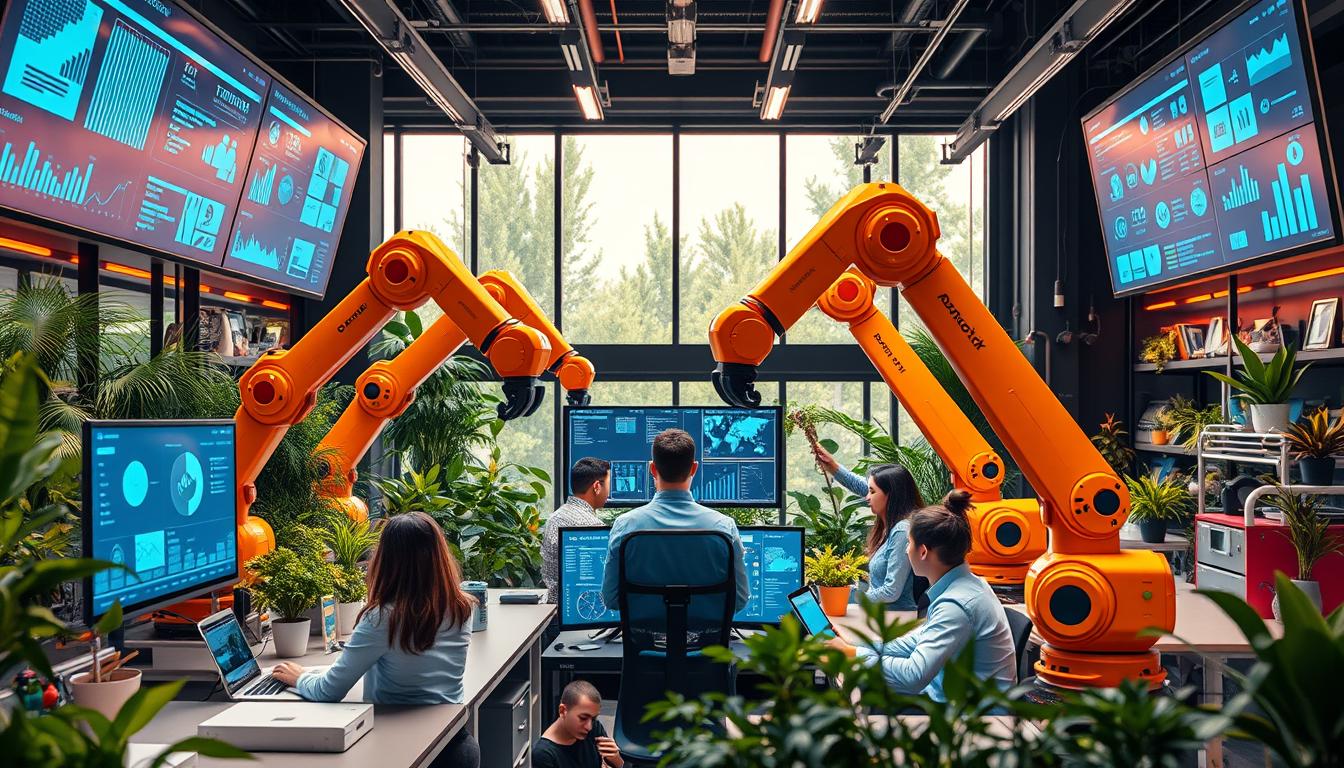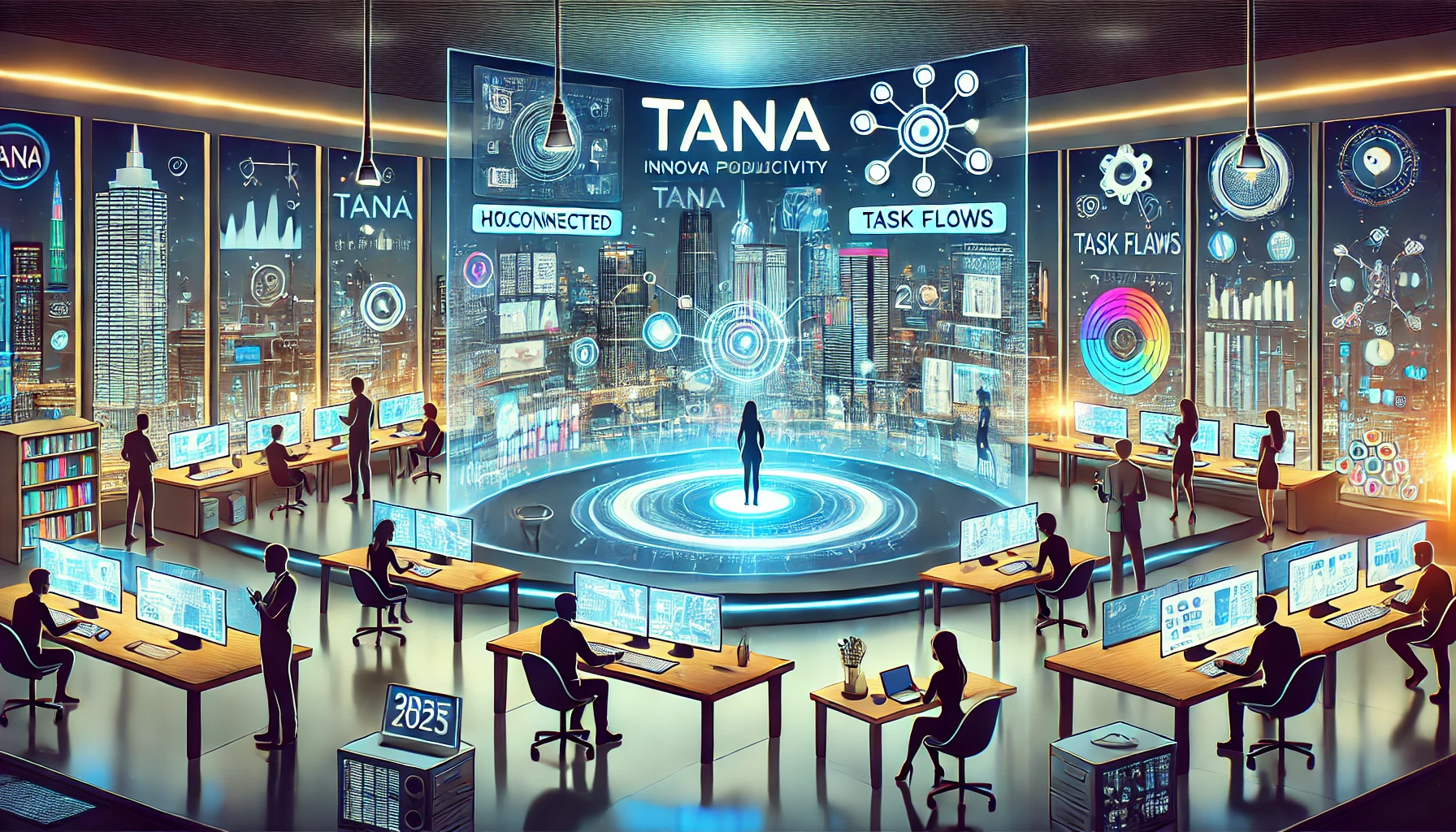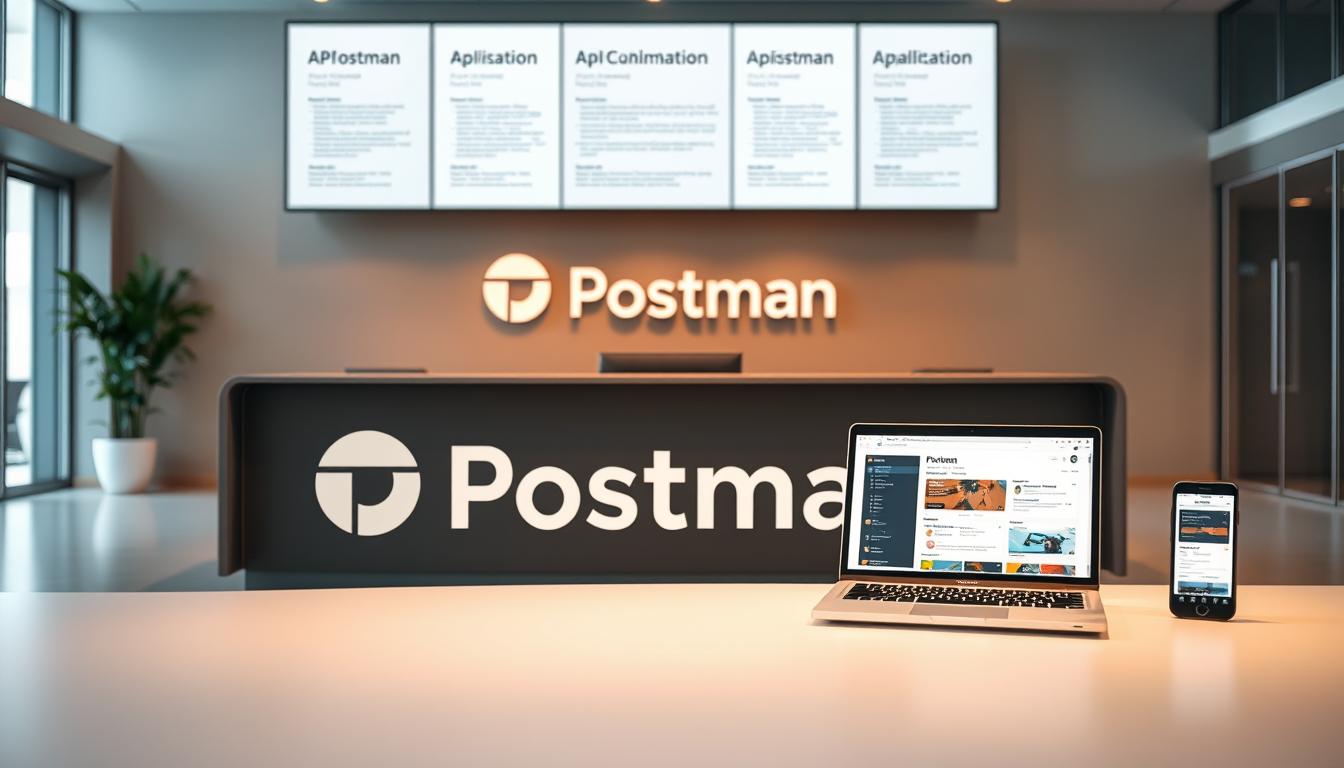As we move forward in project management, a big question pops up: Are we ready to fully use AI? AI is more than a trend; it’s a big change that will make things better and easier. We’ll look into how AI and automation will change project management, making it more efficient and challenging than old ways.
Getting ready for these changes is key to success in our complex world.
A futuristic office space bustling with holographic displays of project timelines, AI-driven analytics visuals, and robotic assistants collaborating with human teams, bright neon colors, sleek design, high-tech elements, large windows overlooking a city skyline, an atmosphere of innovation and collaboration.
Key Takeaways
- Artificial intelligence is redefining the future of project management through innovative automation.
- Understanding AI’s role will enhance our adaptability in project execution.
- Productivity enhancements are at the forefront of AI integration.
- Embracing project management trends will be essential for success.
- Collaboration between AI and project professionals is key for optimization.
The Evolution of Project Management
The world of project management has changed a lot in recent years. We’ve moved from traditional project management to newer methods that use technology and teamwork. Old ways were too strict, making it hard to be flexible and adapt.
New trends show we need fresh project management methodologies for today’s fast-paced world. Agile and hybrid methods are now key. They help teams work better by using feedback and changing plans as needed.
The Project Management Institute (PMI) talks about these changes in their yearly surveys. They say project managers must be open to new ideas and practices. We need to focus on strategies that can change and succeed in today’s projects.
| Traditional Project Management | Modern Project Management |
|---|---|
| Linear process | Iterative process |
| Fixed scope and timeline | Flexible scope and timeline |
| Limited collaboration tools | Collaborative tools and platforms |
| Focus on documentation | Focus on communication |
| Risk-averse approaches | Proactive risk management |
Understanding Artificial Intelligence in Project Management
Exploring Artificial intelligence in project management shows us how artificial intelligence technologies mimic human thinking. This helps businesses work more efficiently. It makes decisions better, operations smoother, and communication clearer for everyone involved.
Artificial intelligence in project management changes the game. It helps manage resources, plan better, and improve how projects are done. With project management tools, we can automate tasks. This makes work faster and cuts down on mistakes.
AI gives us insights to manage projects better and avoid risks. It helps us work together better, focusing on clear goals and efficiency. This leads to projects being done well and on time.
A futuristic office environment showcasing advanced AI technology integrated into project management tools, featuring holographic displays of data, dynamic charts, and virtual collaboration spaces, with a blend of sleek design, modern furniture, and vibrant lighting, embodying innovation and efficiency in a professional setting.
Types of Tasks AI Can Automate
AI is changing how we manage projects. It’s key to know what tasks AI can automate. By automating tasks, we cut down on mistakes and boost efficiency. This leads to better productivity for everyone.
Repetitive Tasks That Drain Productivity
Repetitive tasks can really drain our energy. They take us away from important work. Here are some tasks that AI can help with:
- Data entry: AI can do this job for us, saving a lot of time.
- Scheduling: AI can set up meetings and deadlines, freeing us up for more.
- Progress tracking: AI keeps an eye on project progress and updates us automatically.
Examples of Manual Tasks AI Can Transform
AI can also change how we do manual tasks. It makes project management better in many ways:
| Manual Task | Automated Process | Benefits |
|---|---|---|
| Status updates | Automated reporting systems | More accurate and timely updates |
| Resource allocation | AI-driven analysis | Better use of resources for projects |
| Risk assessments | Predictive analytics | Finds potential problems early |
Benefits of Automation in Project Management
Automation is key in modern project management and offers many benefits. It makes our work more efficient and saves resources. Task automation not only saves time but also boosts team productivity.
How Automation Saves Valuable Time
Automation is great at saving time for project managers and their teams. It frees us from doing the same tasks over and over, allowing us to focus on more important work.
Then, team members can engage in creative problem-solving and teamwork, which not only makes work more efficient but also happier.
Enhancing Team Productivity Through AI
Using AI in project management boosts productivity a lot. AI helps with task prioritization, workflow optimization, and analysis. This reduces errors and keeps project quality high.
AI tools support project managers in creating an innovative work environment. They help focus on delivering value to stakeholders.
A futuristic workspace showcasing seamless task automation, with robotic arms efficiently managing various tasks, digital screens displaying real-time project data, a serene environment filled with greenery and advanced technology, employees collaborating effortlessly with automated systems, vivid colors representing innovation and productivity.
| Automation Task | Manual Process Time (hours/week) | Automated Process Time (hours/week) | Time Saved (hours/week) |
|---|---|---|---|
| Data Entry | 10 | 2 | 8 |
| Team Alerts & Notifications | 5 | 1 | 4 |
| Task Assignments | 6 | 1 | 5 |
| Reporting | 8 | 2 | 6 |
The Future of Project Management
The future of project management is all about technology. Trends show that the project management profession will change a lot because of new tech. New methods are already changing how we manage projects.
Hybrid methodologies are becoming popular. They mix old ways with agile methods. This makes projects more flexible, fitting today’s fast business world. Being able to change quickly will be key to success.
Collaboration and using data to make decisions are also big. Teams use tech to get data fast. This helps them make better choices. People good at this will be very important in the future.
To wrap up, here’s what the future of project management looks like:
| Key Area | Implications |
|---|---|
| Technology Integration | More use of AI and automation for better workflow. |
| Hybrid Methodologies | Combining old and agile ways for better adaptability. |
| Collaboration Focus | Teamwork and communication get better with new tech. |
| Data-Driven Decision Making | Having real-time data helps in planning. |
The Impact of AI on Project Management Roles
AI technologies are changing project management roles. It’s important to understand how these changes affect our work. Project professionals need to update their skills to stay ahead.
Adapting Skills and Competencies for Project Professionals
AI has made traditional project management methods outdated. Now, we need to be tech-savvy. Project managers must learn to analyze data from AI tools.
They also need to solve problems, think critically, and communicate well with AI. These skills are now crucial.
- Analytical skills to harness data-driven insights
- Proficiency in AI tools and software
- Strong problem-solving capabilities
- Ability to communicate technical information effectively
New Roles Emerging in the Field
AI has brought new roles to project management. We see more demand for data analysts, AI facilitators, and project orchestration specialists. These roles focus on using data to manage projects better.
Project professionals must adapt to these changes. They need to work well in these new roles.
| Emerging Role | Key Responsibilities | Required Skills |
|---|---|---|
| Data Analyst | Analyzing project data to guide decision-making | Data interpretation, analytical thinking |
| AI Facilitator | Implementing AI solutions to improve project workflows | Technical knowledge, project management |
| Project Orchestration Specialist | Coordinating diverse project teams and tools | Leadership, communication, adaptability |
“Futuristic project management office with advanced AI technologies, sleek digital interfaces displaying analytics, diverse team collaborating around a holographic project timeline, robots assisting with tasks, vibrant colors highlighting innovation and efficiency.”
Automation Tools for Project Managers
In today’s fast world, project management can get a lot better with automation tools. For project managers, picking the right software is key. It helps boost productivity and teamwork.
Choosing the Right Project Management Software
Choosing the right project management software is important. We need to look at different options carefully. Here are some key things to think about:
- Functionality: Knowing what features each tool offers helps us find the right one for our needs.
- Usability: The software should be easy to use. This helps teams get on board faster and learn quicker.
- Integration capabilities: Being able to add AI features is crucial. It makes the software more useful.
Integrating AI into Existing Workflows
Adding AI to our workflows can make project management more efficient. Tools that let us add AI are key. They help us save time and use resources better. AI can improve tasks like:
- Making team communication smoother.
- Automating tasks that take up too much time.
- Giving us insights for better decisions.
Adding AI to our software makes our projects more agile and quick to respond.
Challenges in Implementing AI and Automation
Adding AI and automation to project management comes with big challenges. One major issue is team members’ resistance, which slows down progress. It’s key to understand why they resist and find ways to overcome it. Also, we must plan carefully and talk openly about the risks of adopting new tech.
Addressing Resistance from Team Members
Team members often fear the new or don’t understand the tech. We need to talk clearly and train them well. This builds a culture where everyone feels safe to share concerns and see the tech’s benefits. Having ways to give feedback helps improve things and shows team members are valued.
Managing Risks Associated with Technology Adoption
When we bring in new tech, we must watch out for risks. These can be data security problems, integration issues, or unexpected hiccups. By spotting these risks early, we can plan for them. Regular checks on the tech and our team’s readiness help us stay ready for any bumps.
A conceptual illustration depicting the hurdles of AI integration in project management, featuring a fragmented puzzle symbolizing various challenges such as complexity, resistance, and technical issues, set against a backdrop of a futuristic office environment with digital interfaces and robotic elements. The scene conveys tension and uncertainty within an innovative workspace.
| Challenges | Strategies |
|---|---|
| Resistance from Team Members | Effective communication and training |
| Data Security Concerns | Implement robust cybersecurity measures |
| Integration Complexities | Thorough planning and testing phases |
| Unforeseen Disruptions | Develop contingency plans |
Real-World Applications of AI in Project Management
AI has changed project management for the better. It has made things more efficient and effective. Many companies have shared their success stories. These stories show how AI has improved tracking, team work, and making decisions.
Case Studies of Successful AI Implementation
Let’s look at some companies that have made AI work for them:
| Company | AI Tool Used | Outcome |
|---|---|---|
| IBM | Watson Project Management | Enhanced project tracking and predictive analytics |
| Trello | Butler Automation | Improved team workflows and task assignments |
| Asana | Smart Project Templates | Increased project efficiency and reduced setup time |
Lessons Learned from Current Projects
Looking at AI projects, we find important lessons:
- Aligning AI initiatives with organizational goals is key for success.
- Getting the whole team on board is vital for using AI well.
- Training and support for team members are essential for AI’s full benefits.
- Listening to feedback and improving AI tools is important for better results.
A futuristic office space with diverse team members collaborating around a digital touchscreen interface displaying project timelines and AI analytics, robots assisting in task management, virtual reality headsets for remote meetings, and a smart whiteboard with real-time data visualizations.
Training and Development for Future Project Managers
As project management changes, training and development become key. They help future project managers learn essential skills. This ensures they can handle challenges well. It also keeps us up-to-date in a world driven by technology.
Essential Skills for the Next Generation
Future project managers need many skills. Being good at data analytics, leadership, and communication is crucial. They also need to know agile methods and be digitally literate. We should teach these skills through special programs.
The Importance of Continuous Learning
Continuous learning is a must for future project managers. As new tech and methods come, we must keep up. By investing in education, we make our workforce adaptable and innovative.
A modern training room filled with diverse young professionals engaged in a virtual reality project management simulation, sleek technology interfaces displaying graphs and analytics, a collaborative atmosphere with digital tools and interactive screens, bright and innovative design with natural light streaming in, futuristic elements representing AI integration in education.
| Essential Skills | Importance | Methods of Development |
|---|---|---|
| Data Analytics | Improves decision-making | Workshops, online courses |
| Project Leadership | Enhances team collaboration | Mentoring, real-world projects |
| Communication | Facilitates stakeholder engagement | Training sessions, role-playing |
| Agile Methodologies | Boosts project adaptability | Certification programs, training |
| Digital Literacy | Ensures competence with tools | Voluntary workshops, e-learning |
Stakeholder Management in an AI-Driven Environment
In today’s fast-paced world, managing stakeholders is key. Using AI tools changes how we talk to our stakeholders. These tools help us have better, more frequent, and effective conversations.
Enhancing Communication with Advanced Tools
Tools like automated notifications and updates are essential. They help us:
- Foster collaboration by giving everyone quick access to important info.
- Facilitate feedback through systems that collect and summarize what stakeholders say.
- Streamline reporting by using AI to create detailed analytics for everyone.
Using these tools, we create a space where everyone can engage. This boosts our project results and makes sure every voice is heard.
A futuristic workspace featuring diverse professionals collaborating around a high-tech digital interface displaying interconnected data streams and project timelines, with abstract representations of AI algorithms and stakeholder dynamics in the background, vibrant colors and sleek design.
Conclusion
Looking ahead, AI and automation will change how we manage projects. These changes bring new ways to work and new chances for creativity. It’s important to understand these shifts to get ready for what’s next.
We need to keep learning and be open to new tools. This way, we can use AI and automation to our advantage. Being ready will make our projects better and our work more efficient.
In short, using AI and automation is key to moving forward. It’s not just about keeping up; it’s about leading the way. By embracing these technologies, we can stay ahead in project management.
FAQ
Q: How is AI impacting project work and project management skills?
A: AI is transforming project work by automating routine tasks, allowing project management professionals to focus on strategic activities. This shift demands project managers to develop new skills in data analysis, AI tools, and adaptive project management approaches to ensure project success.
Q: What are the future trends in project management for 2024?
A: Future trends in project management for 2024 include the increased adoption of hybrid project management methodologies, the integration of AI to enhance project delivery, and a greater focus on agile project management practices. These trends are expected to transform project management approaches, emphasizing adaptability and efficiency.
Q: How does hybrid project management contribute to project success?
A: Hybrid project management combines the flexibility of agile methodologies with the structure of traditional approaches. This allows project managers to tailor their project plans to meet specific needs, improving adaptability and enhancing the chances of project success.
Q: What role does agile project management play in the future of project management?
A: Agile project management is crucial for the future of project management, offering a flexible and iterative approach that can quickly adapt to changes. This methodology is particularly valuable in dynamic environments, helping project managers address evolving client requirements and market conditions effectively.
Q: What innovations in project management software are expected in the future?
A: The future of project management software is likely to include advanced AI capabilities, enhanced collaboration tools, and more intuitive user interfaces. These innovations are designed to help project managers streamline processes, improve communication, and support data-driven decision-making.
Q: How will the demand for project management skills change by 2024?
A: By 2024, there will be a growing demand for project management skills that incorporate technological proficiency, such as AI literacy, data analysis, and hybrid project management expertise. Project leaders will need to adapt to new tools and practices to stay competitive and ensure effective project delivery.
Q: What impact will AI have on project leaders and senior management?
A: AI will empower project leaders and senior management by providing enhanced data insights and predictive analytics, aiding in strategic decision-making and risk management. It will also allow them to focus on leadership and innovation by automating routine project tasks.
Q: How do future trends in project management help project managers adapt to changing environments?
A: Future trends in project management, such as the integration of AI and hybrid methodologies, offer project managers the tools to adapt quickly to changing environments. These trends support flexibility, continuous learning, and innovation, enabling project managers to respond effectively to new challenges and opportunities.
Q: What insights can be gained from the annual global survey on project management?
A: The annual global survey on project management provides insights into emerging trends, challenges, and best practices in the industry. It helps project professionals understand the evolving landscape, benchmark their practices, and identify areas for improvement to enhance project success.
Source Links
- https://hbr.org/2023/11/what-the-next-generation-of-project-management-will-look-like/
- https://www.knowledgehut.com/blog/project-management/future-of-project-management/
- https://project-management-software.financesonline.com/future-project-management/











